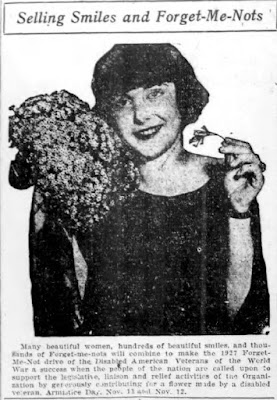Corporal Thomas Beecher
Carpenter enlisted in the Army in 1912 and served until 1919. A member of the
103rd engineers, he received shrapnel wounds, was gassed, and
suffered from shell shock while serving in France during World War I. Upon
returning, Carpenter still felt the physical and mental effects of his time in
the trenches. By 1927, 34-year-old Carpenter had been hospitalized at least 27
times since leaving the Army. Carpenter suffered from debilitating seizures
or fits that often required him to be hospitalized and confined to a strait jacket.
Carpenter was like many
World War I veterans who returned from the war facing both physical trauma and
what we now know as PTSD. For a while after the war, Carpenter had received disability
benefits from the United States Veterans’ Bureau for bronchitis. Those payments
stopped in 1923, however, and Carpenter was unable to prove that his other more
serious ailments were the direct result of his service. Carpenter was unable to find employment and grew desperate.
Local Congressman Gale
H. Stalker and the Elmira chapter of Disabled American Veterans took up his
case in 1927 and successfully petitioned the US Veterans' Bureau for Carpenter to receive $4,000 in
back compensation and approximately $70 a month in the future. At the end of
the ordeal, Carpenter told Stalker that he remained hopeful that he would be
able to be rehabilitated and to find employment.
 |
| DAV forget-me-not from the CCHS collection |
 |
| From an article about forget-me-not sales in 1927 |

Very nice article as even today some veterans coming home from Iraq, Afghanistan or other war areas are coming home with sever injuries and PTSD and having to go through lots of red tape to get the benefits they deserve, hopefully our current President Trump will work with the Veterans Administration to fix it.
ReplyDelete